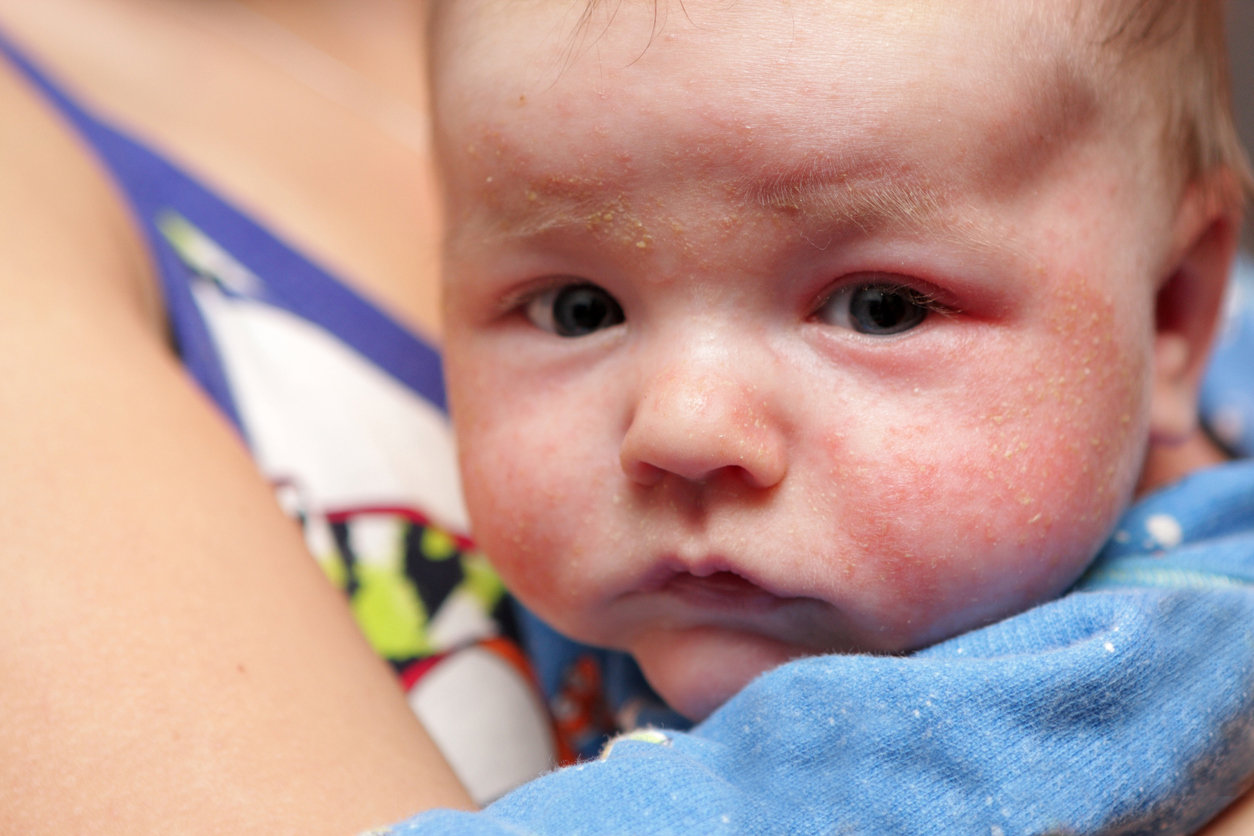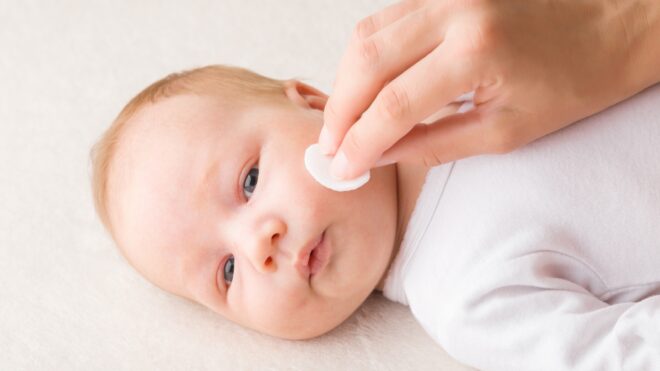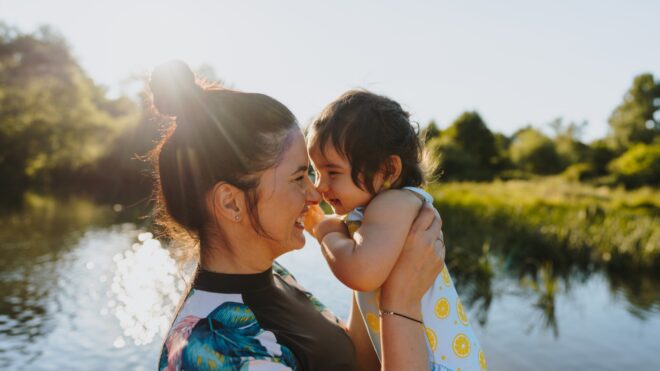
Eczema is a chronic skin condition that can affect anyone at any age, but when does eczema start in babies?
According to the National Eczema Association, eczema is a broad term for a variety of skin conditions that all cause itchiness, redness, and inflammation. Eczema is thought to be an overreaction of the immune system that causes an allergic reaction in the skin to external irritants.
Symptoms of eczema in babies can include:
- Red, irritated skin
- Fussiness and crying in your baby
- Skin peeling
Doctors aren’t entirely sure what causes eczema, but it’s thought to be a combination of a genetic predisposition and environmental factors that “trigger” the condition.
Eczema does tend to run in families and often coincides with allergies.
When does eczema start in babies?
“Eczema can start as early as your baby’s second month,” says Dendy Engelman, MD, Manhattan Dermatology and Cosmetic Surgery, New York, New York.
According to Dr. Engelman, symptoms of baby eczema can range from mild and barely noticeable to very itchy and intense. The skin can appear:
- Dry
- Tender
- Red
- Scaly
- Cracked
- Patches of red areas or light areas
“Some of these symptoms can indicate other problems such as diaper rash, so it’s best to talk to a medical professional before treating the skin problem,” adds Dr. Engelman.
There are many types of eczema, which can all show up in different ages in babies and older children. It can be challenging to know if your baby is suffering from just sensitive skin or eczema because many symptoms can look similar.
It can be helpful to look at how old your baby was when symptoms started, as some types of eczema tend to crop up at specific ages in babies. Here’s a closer look at when eczema can start in babies.
Before 6 months
The National Eczema Association explains that eczema often occurs in babies under 6 months old on:
- The face
- Cheeks
- Chin
- Forehead
- Scalp
For babies 6 months old and younger, eczema does not usually appear on the diaper area. If your baby has eczema at this stage, the skin tends to look red and “weepy.”
Real moms share their baby’s eczema symptoms.
In our mom community, the under-6-month crowd was a very common time for baby eczema symptoms to first begin.
When does eczema start in babies? “As soon as my son was born, his skin was extremely dry. I knew there was something wrong,” one mom answered. “However, he wasn’t officially diagnosed with eczema until he was 3 months old.”
“At 4 months, the doctors told me then he might grow out of it, but he is almost 4 years old and still has eczema,” added another parent. “It’s always worse in the winter months.”
“When my baby was about 2 months old, what appeared at first to be baby acne started out on his face and moved down to just his elbows and joints,” said a CafeMom parent. “Turned out, it was eczema.”
“My son started showing signs of eczema at 3 months old,” added another mom. “First, he started scratching his stomach and legs — now the patches are coming out under his neck and under his arm.”
Between 6-12 months.
Babies who develop eczema between 6 and 12 months old tend to show their first symptoms in their elbows and knees, especially if they’re crawling.
Because babies are more “on the move” at this age, the eczema rash can become infected and show a yellow crust or small, pus-filled bumps.
Eczema may also first show up with weather or other environmental changes.
“My baby first started showing symptoms when the weather turned colder,” noted one mom.
From toddlerhood to 5 years old.
Parents wondering when eczema starts in babies may be surprised to hear that the condition can also first show up anytime between 1 and 5 years old.
Eczema in toddlers and preschoolers tends to look like:
- Small, red bumps
- In the creases of elbows and knees
- On the wrists, ankles, and hands
- Around the mouth
- On the eyelids
The skin may also look more dry and scaly and appear thickened with lines in it, a process called “lichenification.”
“My oldest was 2 and a half (only one small patch on his tush), my second was 18 months (on the back of the neck, front of elbows and feet, and backs of the knees), and my youngest who’s 6 weeks has it the worst (over his whole body except the diaper region)!” shared one mom about her toddlers’ diagnoses.
How to treat baby eczema.
If your baby receives a diagnosis of eczema, the good news is that many babies can outgrow eczema or see significant improvements in the condition as they get older, says the Cleveland Clinic.
In the meantime, Dr. Engelman recommends opting for fragrance-free products and looking for the seal of acceptance from the National Eczema Association on anything you buy for your baby’s skin.
Flare-ups can be treated with your baby’s treatment plan, but don’t hesitate to reach out to your doctor with questions or concerns.
“If it doesn’t resolve within two weeks, seek the counsel of a medical professional for further guidance and management,” Dr. Engelman says.







